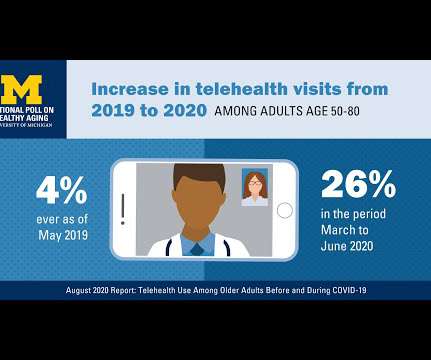Telehealth Use Among Older Americans: Growing Interest, Remaining Concerns
Health Populi
AUGUST 25, 2020
In the Fear of Going Out Era spawned by the COVID-19 pandemic, many patients were loath to go to the doctor’s office for medical care, and even less keen on entering a hospital clinic’s doors. This drove health consumers to virtual care platforms in the first months of the public health crisis — including lots of older people who had never used telemedicine or even a mobile health app.
















Let's personalize your content